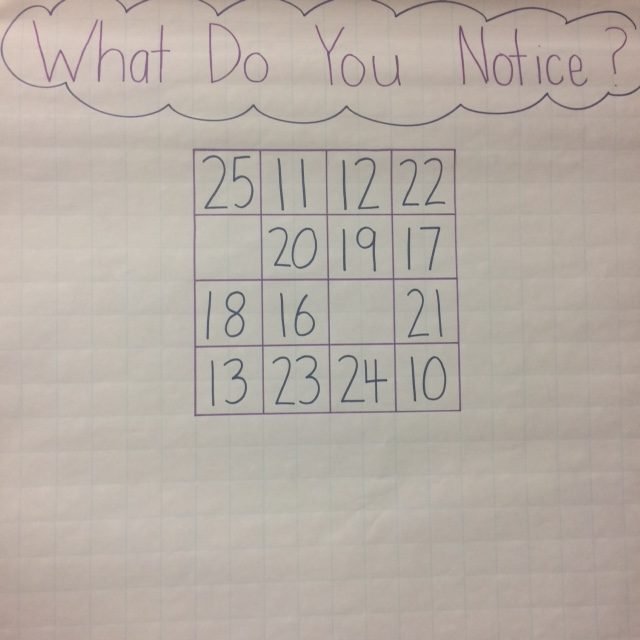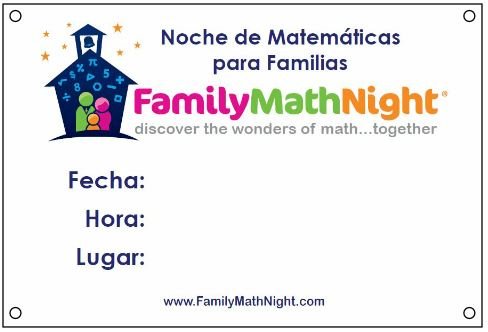What Do You Notice? Magic Square

Skills:
K-2: counting, number recognition, comparing, geometric shapes
3-5: even/odd numbers, addition/subtraction
In a magic square, all the rows, columns, and diagonals add to the same number. In our case, the numbers all add to 70. Usually, a magic square starts off with a few numbers filled in and participants figure out all the missing numbers. For this activity, though, I wanted participants to focus on the numbers in the grid so I only left two small squares empty.
At a beginning level, students can simply notice that there are numbers and point to numbers they recognize. They can count how many of each digit they see. Some of these students may even be able to “read” some of the double-digit numbers.
Some participants will notice squares. The grid is a 4 by 4 so there are 16 squares for numbers. (There are technically a lot more than 16 total squares and this may be a challenge to put out to the older students.)

